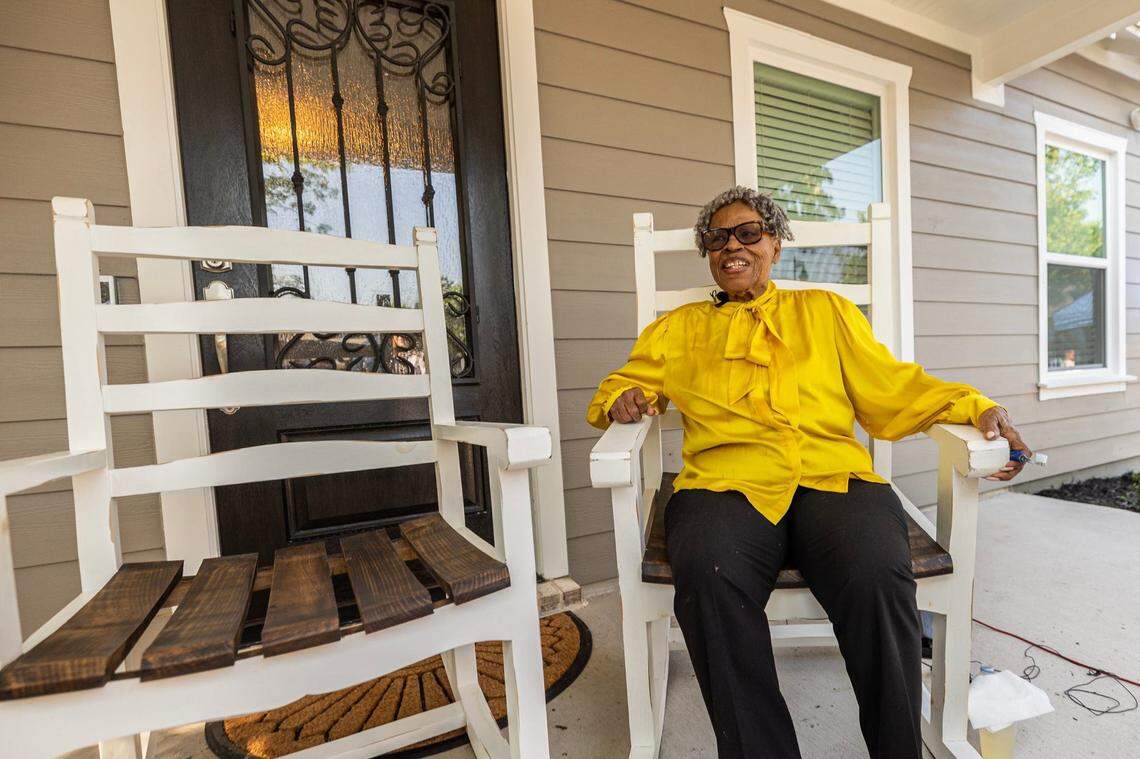The Fort Worth Tarrant County branch of the National Association for the Advancement of Colored People premiered a new documentary Saturday, highlighting the lives of eight legendary Fort Worth and Tarrant County residents.
The documentary, “Unlocked Voices: Bridging the Future,” tells the story of eight Black Tarrant County residents who shaped history.
One of those names will be familiar to many Fort Worth residents: Opal Lee, known as the “Grandmother of Juneteenth.” Juneteenth recognizes the end of slavery in the United States on June 19, 1865, when Union soldiers arrived in Galveston to enforce the Emancipation Proclamation, which President Abraham Lincoln had signed more than two years earlier.
In 2016, Lee began her campaign for Juneteenth to be recognized as a national holiday with a walk to Washington, D.C. Lee was in attendance in 2021 when President Joe Biden signed a bill making Juneteenth a national holiday.
But the documentary also features Fort Worth residents who aren’t as famous as Lee, including Lorraine C. Miller, Estella Williams, Mattie Peterson Compton, Louis Sturns and Norma Roby.
For director and producer Robert Eric Wise, the goal of the documentary was to introduce more young people to the work and accomplishments of pivotal Black Fort Worth residents.
“These are people who have accomplished amazing things that most people don’t know anything about … and their accomplishments have shaped our lives, yeah, and we didn’t even know it,” Wise said.
Blake Moorman, the first vice president of the Fort Worth Tarrant County NAACP and co-producer of the documentary, said the idea to preserve these stories started about four years ago.
“We said, ‘We need to sit these people down and get their stories in their own voices,” Moorman said.
One of those voices was that of L. Clifford Davis, who died in February, after he had been interviewed for the documentary. Davis was a civil rights lawyer who fought to desegregate public schools in Texas. After the U.S. Supreme Court outlawed public school segregation in 1954 in the Brown v. Board of Education of Topeka ruling, many schools across the South refused to abide by it, including the Mansfield school district. The town’s only high school was for whites only, forcing Black students to travel to Fort Worth to go to school.
Davis sued the Mansfield school district on behalf of Black students in 1955, and a federal appeals court ruled in their favor. One of those students was Rev. Floyd Moody, who is also featured in the documentary.
Williams, the first female president of the Fort Worth Tarrant County NAACP, said she hopes to get the documentary into the Library of Congress so that it can be preserved and viewed by more people.
“We have such major civil rights icons right in Fort Worth that people can learn from,” Williams said.
